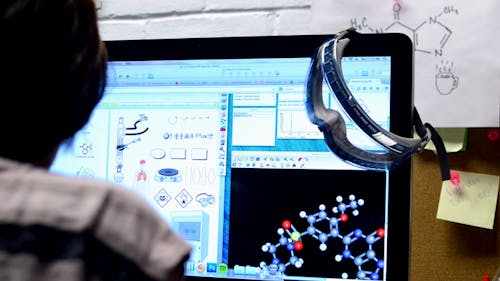Rutgers alum creates popular chemistry software iChemLabs

Kevin Theisen, founder of iChemlabs and a Rutgers alumnus, opened doors for students and educators by producing iChemlabs in 2008.
iChemlabs is a company that creates affordable and student-geared software that allows users to three-dimensionally draw chemical structures, according to MyCentralJersey.com.
“I think in a lot of ways, when you work in chemistry, you become pigeonholed and think you have to put on a lab coat and pour chemicals in a lab,” Theisen said.
With an academic background in chemistry and computer science, Theisen said the most successful people are those who can create a niche for themselves using multiple interests.
As a Rutgers undergraduate in 2004, Theisen developed a computer program that would help him with homework for organic chemistry, a sub-discipline of chemistry.
Toward the end of his sophomore year, Theisen said he began working on various tools to simulate nuclear magnetic resonance (NMR) spectrums in order to produce the spectrum.
“After a few months, the product started becoming better, and it was neat to me that you could build something that could eventually become smarter than you,” he said.
Theisen distributed the software online, and it was downloaded by many people worldwide shortly thereafter.
“I eventually become more interested in communication and graphics," he said. "How do we communicate (chemistry) with each other, how do we describe it, how do we display it? ChemDoodle was the product born out of that interest.”
According to MyCentralJersey.com, ChemDoodle, the seventh version of the software, is used as an educational tool at thousands of universities in eighty countries around the globe.
The program is offered to Rutgers students for free.
As a result of Theisen's focus on portability and accessibility, all of iChemlabs’ products are available on mobile devices, desktops and Xbox and 3DS gaming devices.
“When I started working with more commercial software, competition was around $4,000 a copy, so it was difficult for someone like me who wanted to do more computer work with chemistry. I had to write the software myself,” Theisen said.
Heinz Roth, a professor in the Department of Chemistry and Chemical Biology, finds ChemDoodle helpful for educators as well as students.
Roth said much of organic chemistry concerns the detailed structures of molecules, such as how carbons and atoms are connected, but also how they are displaced in three-dimensional space.
“One has to properly represent that,” he said. “The drawing tool has pre-made structures to visualize the molecules, which is very valuable.”
Roth said he uses the software to draw and integrate images of chemical reactions in preparation for PowerPoint lectures. This gives students a way to better visualize the three-dimensional relationship between agents and products.
Originally created with the intent of helping students, Theisen’s product has made partnerships with organizations such as Cengage Learning and the Royal Society of Chemistry's ChemSpider, as well as licensing grants from Microsoft, Bayer and Thermo Fisher.
Last week, iChemlabs announced ChemStack as a new enterprise-level solution for people working with databases or chemically intelligent systems to search and analyze structural components of compounds.
“In general, what we try to do is provide software that allows chemists to communicate in different ways,” he said.
With his growing success, Theisen finds that the support of Rutgers' chemistry department early on in his career was especially impactful.
“The chemistry department gave me a grant of around $10,000, funded by an external donor which was a huge deal at the time,” he said.
Theisen now funds an annual award for excellence in chemistry and programming to inspire ambitious students and kindle their individual interests.
“The faculty members at Rutgers are some of the best in their world and really do care that their students do well, which is one of the reasons why I keep coming back,” he said.
According to MyCentralJersey.com, Theisen’s former mentor and a Professor in the Department of Chemistry and Chemical Biology, Roger Jones, said "Kevin is a great success story and will have a substantial impact on education in chemistry for years to come.”
Theisen said his time as an undergraduate gave him the freedom to explore his interests and cultivate an entrepreneurial career.
“I think the bottom line is (that) you should never give up (on your interests),” he said. “In college, you have the opportunity to risk a little and make mistakes, which may not be so true for the rest of your life.”



